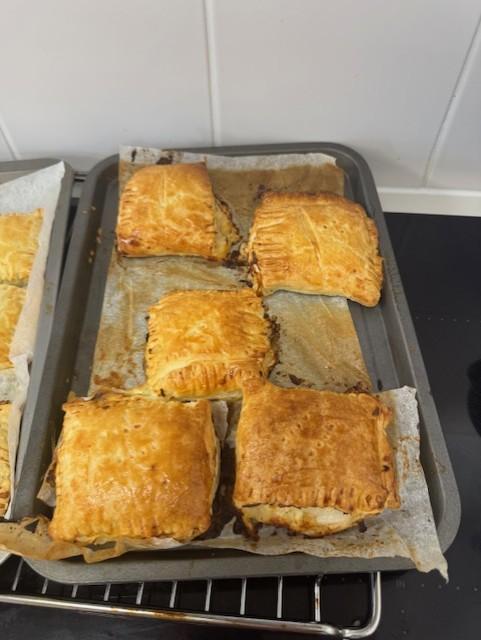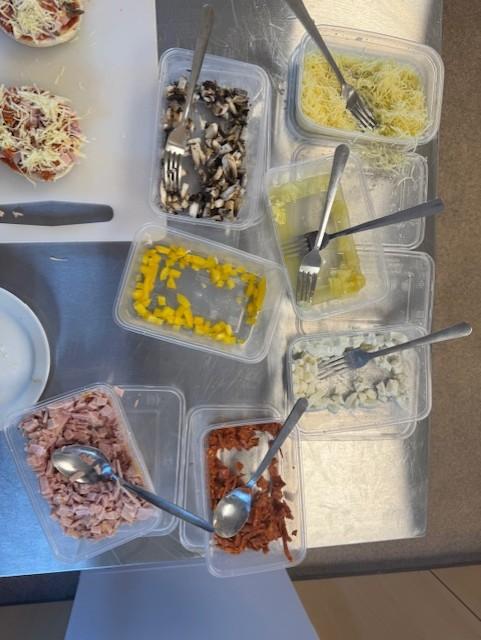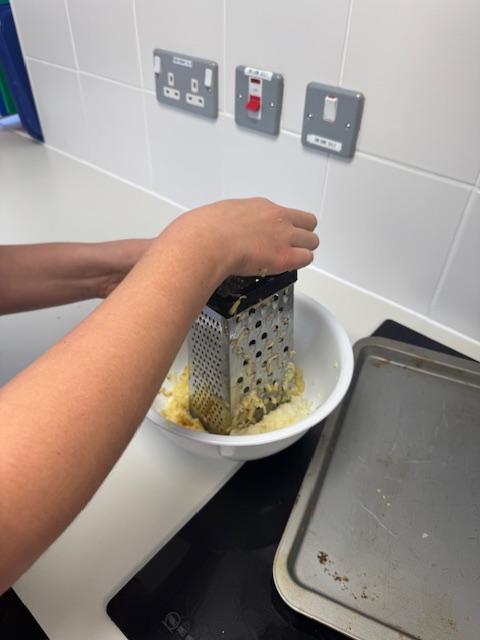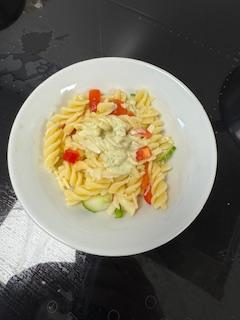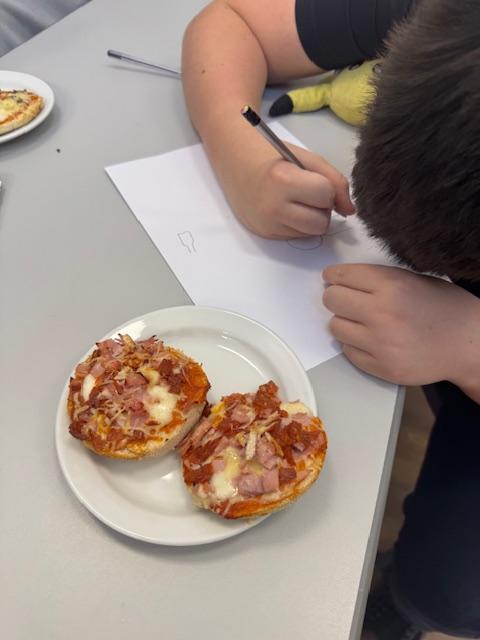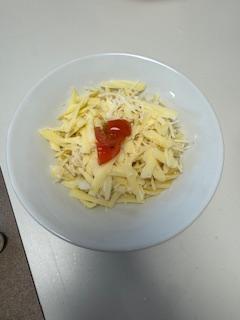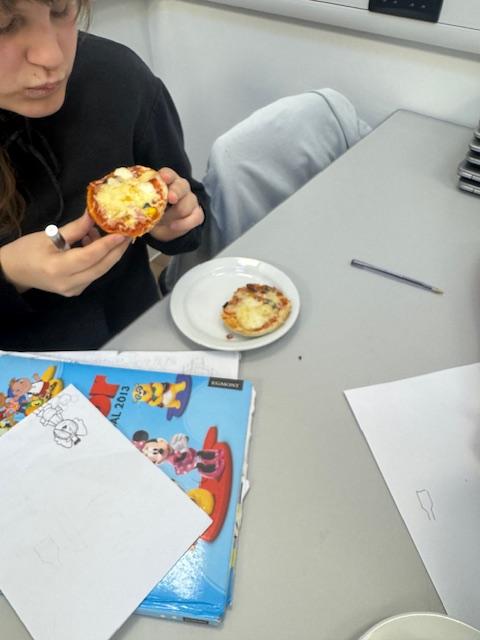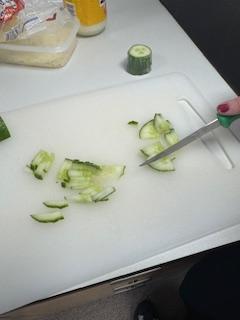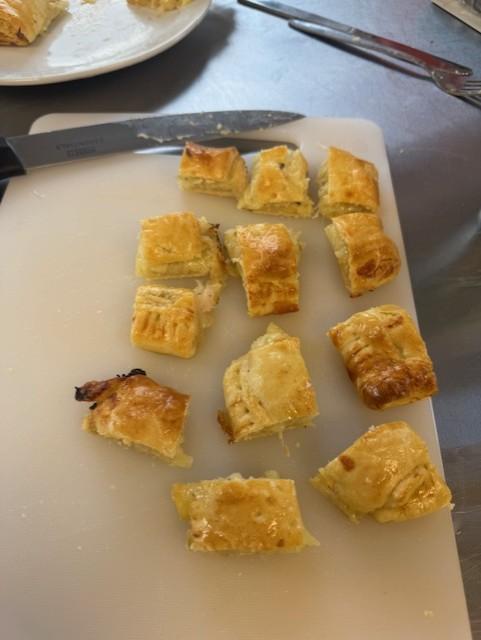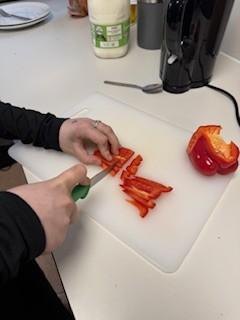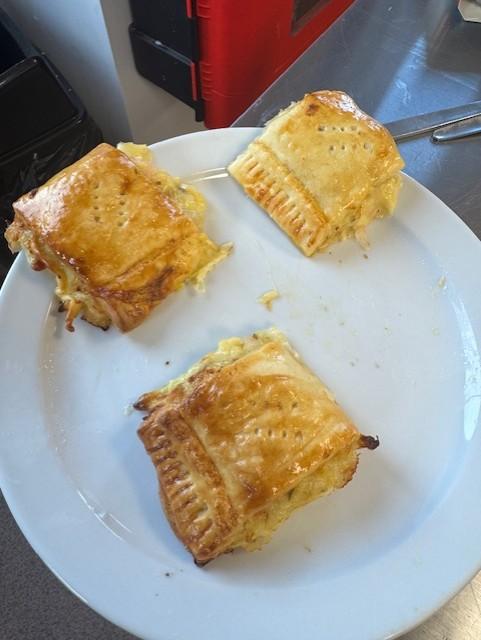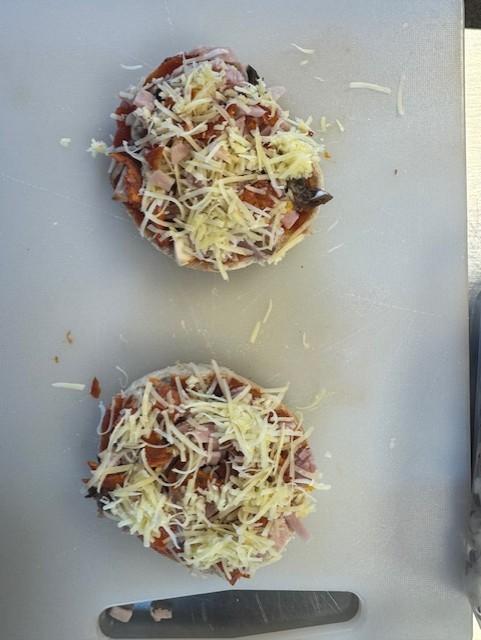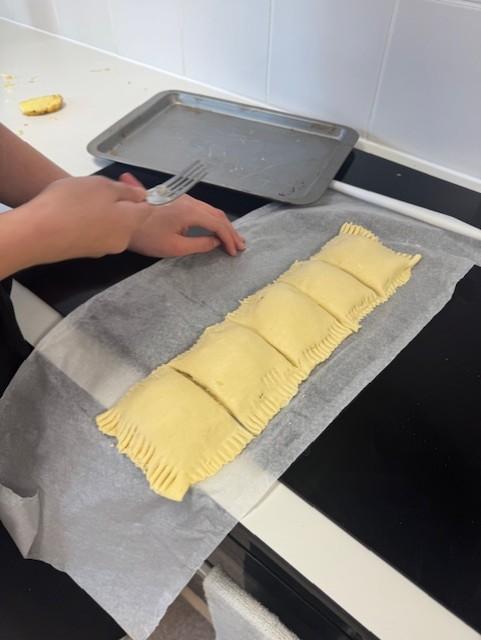Food Tech
D&T Food & Nutrition This Term
Students continue to make excellent progress in Food Technology developing skills using a variety of processes and methods, ingredients and recipes.
This term started with a Seasonal Soup - Refining the chopping skills to cut a range of vegetables, which were then fried or boiled with a stock to create a lovely broth. These were then combined with Tomatoes and then blended in a mixer. As we approach Half term, students are cooking Bacon and Sausages Sandwiches, but more importantly discussing what's best? Is it white bread or brown bread, toast or butter, ketchup or brown sauce. This will then lead onto 'Eggs 4 Ways' - staring with either Boiled, Fried or Scrambled and then in week two - learning to mix ingredients to make an Omelette. We will then complete the term by making Pancakes, which can be either sweet or savoury using the '3' cup method, learning to weigh out ingredients and controlling heat on the hob.
Intent
Our aim is to develop an interest in and a love of food that enables students with the knowledge, understanding and skills required to use ingredients to cook dishes or meals. They can apply the principles of food science, nutrition and healthy eating. Our curriculum will encourage students to make informed decisions about what they eat, with a wide range of learning opportunities which will develop vital life skills. Enabling students to feed themselves and others affordably and nutritiously, now and later in life.
Aim for every student
The main aims are for students to learn how to make food, which is safe to eat, focussing upon key practical skills, using basic tools, equipment and processes. Each practical session is sequenced and designed to further develop and embed the key skills previously taught and learnt. Students will be encouraged to investigate how to have a well-balanced diet and how this links to their health and wellbeing, these will relate to dishes prepared during that half term depending on types of seasonal foods available .
During food and nutrition, students will:
1. Demonstrate effective and safe cooking skills by planning some aspects of a dish, preparing and cooking using a variety of foods, cooking techniques and equipment.
2. Develop their knowledge and understanding of the functional properties and chemical processes as well as the nutritional content of food and drinks.
3. Understand the relationship between diet, nutrition and health, including the physiological and psychological effects of poor diet and health.
4. Understand the economic, environmental, ethical, and socio-cultural influences on food availability, production processes, and diet and health choices that are reflected by this.
5. Demonstrate some knowledge and understanding of functional and nutritional properties, sensory qualities and microbiological food safety considerations when preparing, processing, storing, cooking and serving food.
6. Understand and explore a range of ingredients and processes from different culinary traditions (traditional British and international), to inspire new ideas or modify existing recipes.


